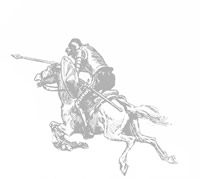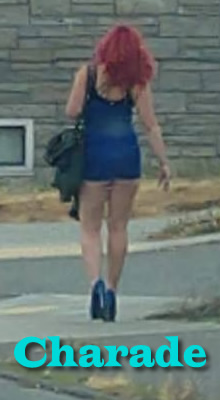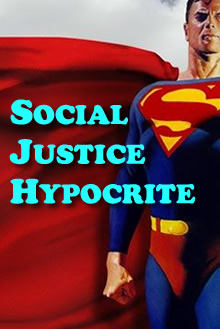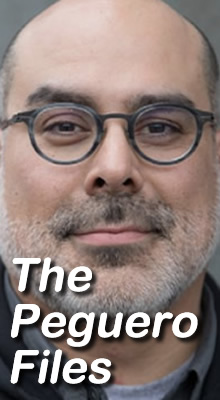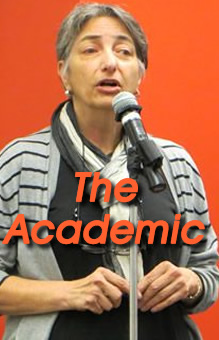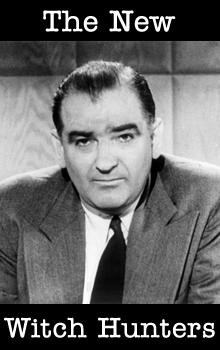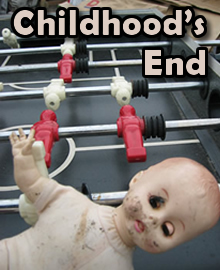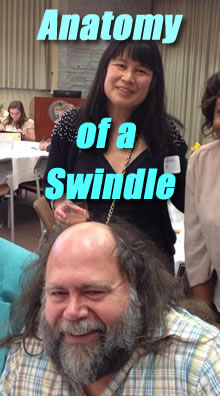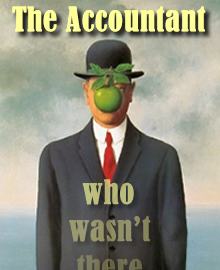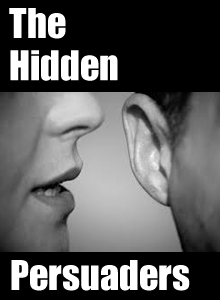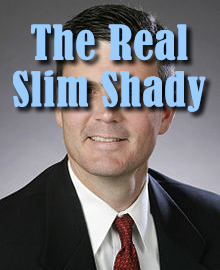This is the Notes page for the Ed McKenna article.
1. What’s special about the presiding judge? –The presiding judge makes calendar assignments, oversees the administrative aspects of the court, and makes personnel decisions. The presiding judge also runs the monthly bench-bar meeting and represents the court to the public.
2. The drag order. In an email to me regarding the case, McKenna took issue with his accusers’ use of the term “drag order”:
Holmes and Khandelwal make an issue regarding my order to physically bring Calderon to court. Fact is, Judge Chess also had previously signed such an order in the same case. Not sure who they were quoting, but they certainly were not quoting me as I have never used that term.
3. There are three levels of sanctions the CJC can impose. In descending level of severity, they are: censure, reprimand, and admonishment. Censure is relatively rare and is typically used when there is a pattern of egregious misbehavior (see the Mary Roberts case) or potentially criminal actions (see the Holly Johnson case). Censure cases rarely result in the removal of a judge from the bench2, which is what Holmes and Khandelwal were essentially seeking to do to Judge McKenna, on their own, and without the Commission’s help. Complaints of bias such as the one Holmes and Khandelwal made against McKenna usually end, if upheld, with a mild sanction. In 1997, Supreme Court Justice Richard Sanders was reprimanded for showing bias by speaking to a group of an anti-abortion supporters and ordered to take a judicial ethics course. (The finding was later overturned in the Washington Supreme Court, which found that Sanders’ speech was protected by the First Amendment.) In 2005, he was admonished for meeting ex parte with people whose cases were pending before the court. In that case, he was not sanctioned.
Even the CJC is not empowered to remove judges from the bench. Only the Washington State Supreme Court can do that, on the CJC’s recommendation or in other exigencies. The last (and possibly the only) time judge was removed from office was Judge Grant Anderson in 1999. The so-called Cadillac Judge had taken kickbacks from a client and lied about his finances, and had further given false testimony to the Commission. The Commission recommended that the Supreme Court suspend Anderson for four months, but the Court took it further and removed him from office.
4. The smoking gun email. At Holmes’ suggestion James sent a public disclosure request to Dan Nolte in Pete Holmes’ office: “Hi, Dan,” James said, “Last night I spoke with Pete Holmes after the Civic Cocktail panel. He stated that he had proof in the form of an email that Matt Markovich had been invited by Judge McKenna to his courtroom to observe the sentencing of Mr. Calderon. I then spoke with the KOMO producer on the panel, Bill [Lanier], and he said that was not accurate. Can you please send me us a copy of the email(s) in question?” Nolte then forwarded her the March 23 email from Lisa Daugaard. This email is a part of the public record, and it shows two very important things. First, it shows that Daugaard’s email had been sent to Holmes’ office by someone. Second, it shows that Holmes was relying on Daugaard’s claims against McKenna – claims that Daugaard said needed looking into before they could be assumed to be true – to support his claim that McKenna had arranged with a TV reporter to be in court to witness a dramatic sentencing.
5. Here is the current contract between King County and the City of Seattle for public defense services. I believe the operative item is item (E)15 under Section 6 ~ Scope of Work. The County will “participate on any City criminal justice committee or workgroups as requested by the City Agreement Administrator, the Court, or any other City criminal justice agency.” (Emphasis added.) On the court’s Web page, under “Responsibilities of Presiding Judge” it says:
g) A Standing Advisory Committee, referred to as the Bench-Bar Committee, appointed and chaired by the Presiding Judge or his/her designee judge, may meet monthly to discuss policies, procedures and other matters that may be of mutual interest. The Bench-Bar Committee shall be comprised of the Court Administrator, Chief Clerk, Chief Bailiff, Probation Director, the City Attorney or designee and the Directors or designee of the Public Defense agencies. A member of the Washington Association of Criminal Defense Lawyers and the Chair or his/her designee of the Criminal Law Section of the King County Bar Association may also be asked to participate. [Emphasis added.]
